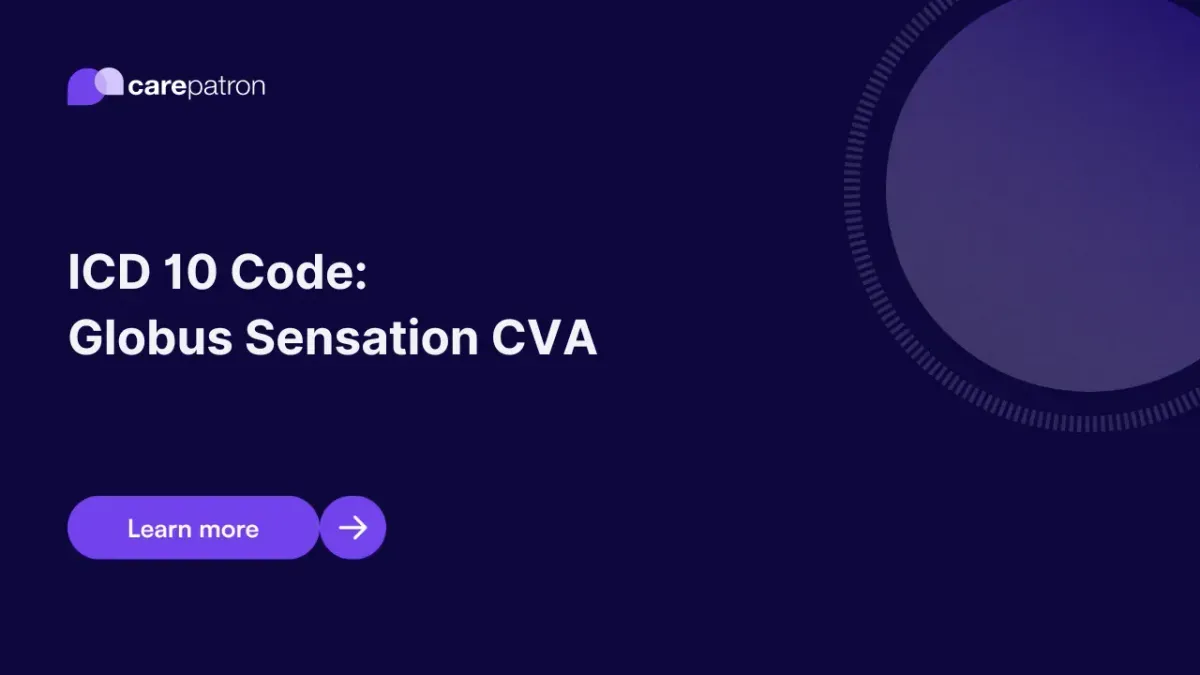
Globus Sensation CVA ICD-10-CM Codes
Familiarize yourself with the ICD-10 code used for globus sensation CVA and learn more about its clinical description, billability, synonyms, etc.
Use Code
EHR and practice management software
Get started for free
*No credit card required
Free
$0/usd
Unlimited clients
Telehealth
1GB of storage
Client portal text
Automated billing and online payments
